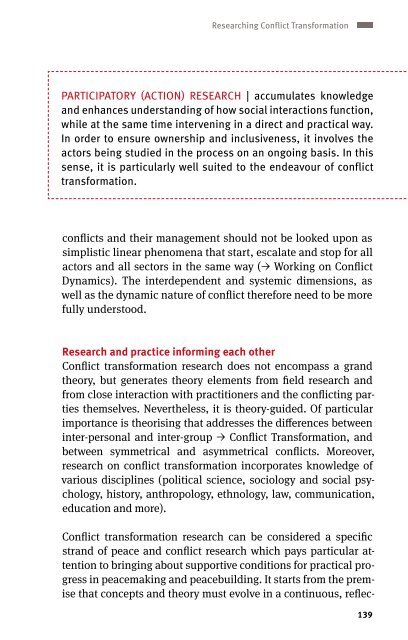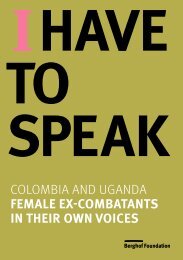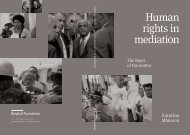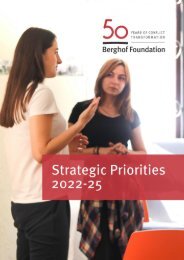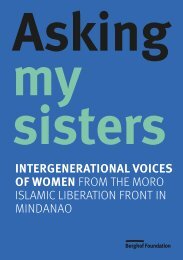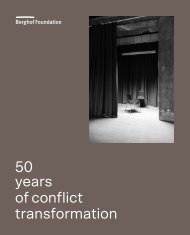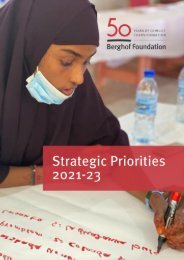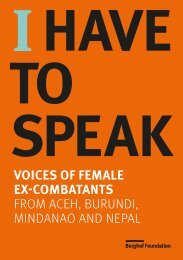Berghof Glossary on Conflict Transformation
The Berghof Glossary on Conflict Transformation presents 20 of the main principles and approaches used by the Berghof Foundation in its work. It is a concise and accessible exploration of what it takes to create “space for conflict transformation”. 2019 edition.
The Berghof Glossary on Conflict Transformation presents 20 of the main principles and approaches used by the Berghof Foundation in its work. It is a concise and accessible exploration of what it takes to create “space for conflict transformation”. 2019 edition.
Create successful ePaper yourself
Turn your PDF publications into a flip-book with our unique Google optimized e-Paper software.
Researching C<strong>on</strong>flict Transformati<strong>on</strong><br />
PARTICIPATORY (ACTION) RESEARCH | accumulates knowledge<br />
and enhances understanding of how social interacti<strong>on</strong>s functi<strong>on</strong>,<br />
while at the same time intervening in a direct and practical way.<br />
In order to ensure ownership and inclusiveness, it involves the<br />
actors being studied in the process <strong>on</strong> an <strong>on</strong>going basis. In this<br />
sense, it is particularly well suited to the endeavour of c<strong>on</strong>flict<br />
transformati<strong>on</strong>.<br />
c<strong>on</strong>flicts and their management should not be looked up<strong>on</strong> as<br />
simplistic linear phenomena that start, escalate and stop for all<br />
actors and all sectors in the same way (→ Working <strong>on</strong> C<strong>on</strong>flict<br />
Dynamics). The interdependent and systemic dimensi<strong>on</strong>s, as<br />
well as the dynamic nature of c<strong>on</strong>flict therefore need to be more<br />
fully understood.<br />
Research and practice informing each other<br />
C<strong>on</strong>flict transformati<strong>on</strong> research does not encompass a grand<br />
theory, but generates theory elements from field research and<br />
from close interacti<strong>on</strong> with practiti<strong>on</strong>ers and the c<strong>on</strong>flicting parties<br />
themselves. Nevertheless, it is theory-guided. Of particular<br />
importance is theorising that addresses the differences between<br />
inter-pers<strong>on</strong>al and inter-group → C<strong>on</strong>flict Transformati<strong>on</strong>, and<br />
between symmetrical and asymmetrical c<strong>on</strong>flicts. Moreover,<br />
research <strong>on</strong> c<strong>on</strong>flict transformati<strong>on</strong> incorporates knowledge of<br />
various disciplines (political science, sociology and social psychology,<br />
history, anthropology, ethnology, law, communicati<strong>on</strong>,<br />
educati<strong>on</strong> and more).<br />
C<strong>on</strong>flict transformati<strong>on</strong> research can be c<strong>on</strong>sidered a specific<br />
strand of peace and c<strong>on</strong>flict research which pays particular attenti<strong>on</strong><br />
to bringing about supportive c<strong>on</strong>diti<strong>on</strong>s for practical progress<br />
in peacemaking and peacebuilding. It starts from the premise<br />
that c<strong>on</strong>cepts and theory must evolve in a c<strong>on</strong>tinuous, reflec-<br />
139


